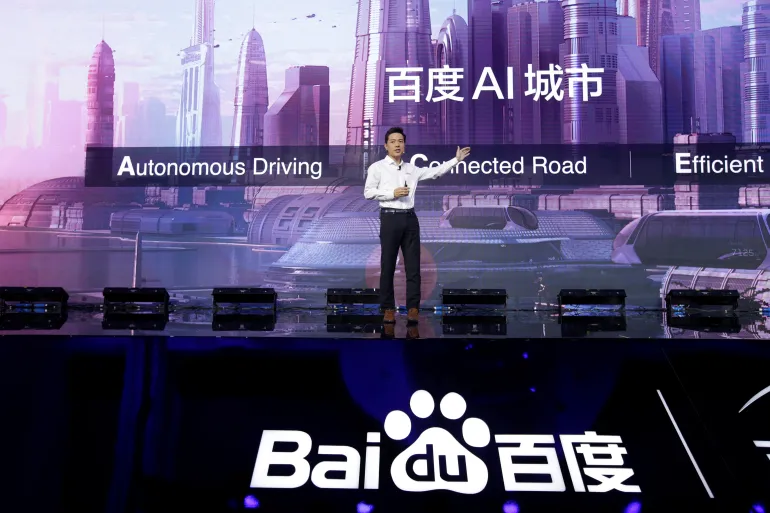Taipei, Taiwan – As the arrival of artificial intelligence-powered chatbots sends shockwaves through the global tech industry, China is racing to produce versions of its own.
China’s search-engine giant Baidu has announced plans to release its chatbot ERNIE sometime in March, following the pioneering launch of ChatGPT, which has prompted existential questions about the future of sectors ranging from education to journalism and healthcare.
Chinese tech shares rallied in response to the news and authorities have pledged to beef up their support of the sector. Similar projects to ERNIE are under way at Chinese tech giants Huawei, Alibaba, Tencent, JD.com and top institutions including the Beijing Academy of Artificial Intelligence.
China’s Ministry of Science and Technology said last week it would push for the integration of AI across Chinese industry, while cities including Beijing have also announced plans to back developers.
But while China appears to be on the cusp of producing a fast follower to rival ChatGPT, which was developed by California-based OpenAI, there are big questions about how the technology will operate within an ecosystem that includes strict internet controls.
“The most general-purpose technology we have, artificial intelligence, should be something that’s a super general purpose,” Jeffrey Ding, an assistant professor at George Washington University who studies the Chinese tech sector, told Al Jazeera.
“But it’s really shaped by the specific, political, cultural, linguistic context in which these models are developed and deployed.”
Bots like ChatGPT rely on generative AI to formulate responses that draw from billions of data points scraped from the internet, which also makes their answers at times difficult to predict.
Lengthy conversations between ChatGPT and users have gone off the rails, leading Microsoft to limit its ChatGPT-powered search engine Bing to a maximum of five questions to keep it on task. ChatGPT’s answers have also rankled conservatives in the United States, who have accused the bot of being “woke” on hot-button social issues such as affirmative action and transgender rights.
In China, internet censors routinely ban keywords, delete posts and bar users in accordance with the sensitivities of the ruling Chinese Communist Party (CCP), leading creative internet users to use homophones, coded messages and screenshots to get around information controls.



Post a Comment